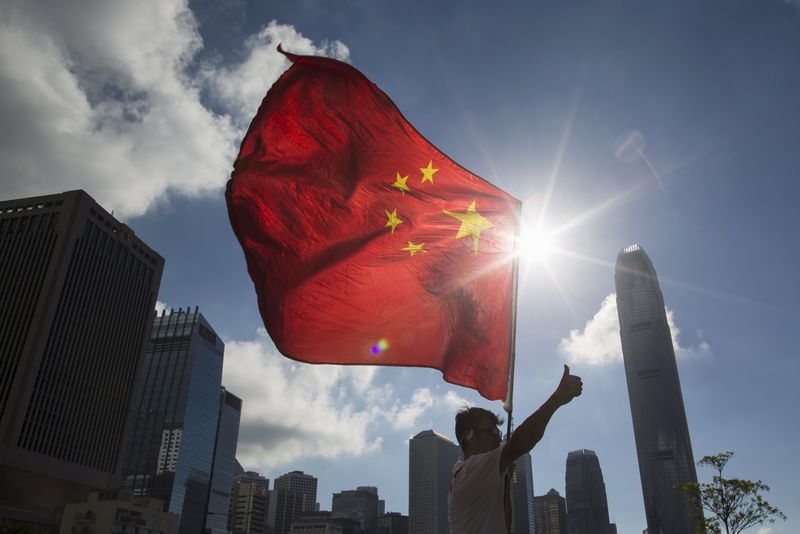By Ben Blanchard
BEIJING, Sept 8 (Reuters) - Tears well up in Wang Shiji's eyes as he describes the first time he saw Mao Zedong, waving to a crowd of Red Guards in Beijing at the beginning of the Cultural Revolution in 1966 when Mao declared class war.
"It was then I decided to give my life to Chairman Mao," Wang, a former soldier, told Reuters. "I swore to live and die as a Red Guard and that is what I will always be."
For Wang, all of China's current problems, from corruption to a growing rich-poor gap, can be traced to the landmark economic reforms ushered in by Deng Xiaoping in the late 1970s after Mao's death, reforms he terms "revisionism".
"None of these bad effects can be rooted out until this privatisation is stopped," he said.
Mao has become a potent symbol for leftists within and without the ruling Communist Party who feel three decades of market-based reform have gone too far, creating social inequalities like poverty and graft.
In lauding Mao, who died 40 years ago on Friday, they sometimes seek to put pressure on the current leadership and its market-oriented policies.
While Mao is still officially venerated by the ruling Communist Party as the founder of modern China - his face adorns every yuan banknote - some fear the party, in a bid to modernise its image, wants to play down his legacy.
Speculation periodically percolates on far-leftist websites that Mao's tourist-thronged mausoleum in central Beijing's Tiananmen Square (NYSE:SQ) will be demolished, or moved elsewhere, though officials have dismissed this.
In January, Mao's supporters were upset when authorities in Henan province dismantled a 36-metre-high gold-coloured statue of Mao for failing to be properly registered.
Wang, fearing Mao's place in history is being ignored or denigrated, last month set up a political party, the Defend Mao Zedong People's Party, in a direct challenge to the Communist Party. He's even taken a pen name, Mao Jidong, meaning "continue Mao's legacy".
For the Communist Party which brooks no challenge to its rule, such parties are anathema.
Wang says he believes democracy is something Mao would have wanted. Last week, he told Reuters he would hold the party's first congress, in the gritty northern city of Shijiazhuang, this week, and he expected about 50 people to attend.
In a brief text message on Tuesday, he said the congress had been cancelled, without giving a reason. Reuters has not been able to reach him since. Shijiazhuang police declined to comment.
MAO'S THOUGHT
While the party has acknowledged Mao made mistakes, there has yet to be an official accounting for the 1966-76 Cultural Revolution, which plunged China into chaos and violence, or for the millions who died from starvation during the 1958-61 Great Leap Forward.
Xi suffered personally during the Cultural Revolution when his father was imprisoned. Xi was sent to the countryside to live with peasants, like millions of other urban Chinese youth.
One source with ties to the leadership told Reuters the Friday anniversary would likely be low key, at least in Beijing, though state media said there would be events in Mao's home province of Hunan.
But Mao is stirring memories much further afield.
Australia's two biggest cities, Sydney and Melbourne, cancelled concerts commemorating Mao's death, with one citing safety concerns, after Chinese Australians complained the content was insensitive. Foreign Ministry distanced itself from the events, saying they were organised by overseas Chinese groups.
Some of Mao's fans are planning events in China, including Sima Nan, a television pundit, blogger and Communist Party defender, who lauds Mao while avoiding expressing too much open dissent.
Sima told Reuters he would be holding a calligraphy exhibition and discussion group, attended by people who had known Mao.
While he does not think Xi has played down Mao, and indeed approves of Xi, he is clear on the problems caused by ignoring what Mao stood for, things like equality and respect for the masses rather than today's get-rich-quick China.
"Straying from Mao Zedong thought is an important reason for the increased seriousness of corruption," he said.
MAO'S TIME
While there is debate in the party about the direction of reforms, there are no serious challenges to Xi's rule from leftists.
One person who was once considered a contender for top leadership and who wrapped himself in a neo-Maoist flag, former Chongqing party boss Bo Xilai, was jailed for life in 2013 for corruption and abuse of power.
Before his downfall, Bo espoused Mao-inspired leftist rhetoric and made bold egalitarian vows. Supporters say he was the victim of a power struggle.
Song Yangbiao, a reporter detained in 2013 after urging people to protest against Bo's trial, told Reuters he had planned to attend Mao-related events on Friday but they had been cancelled for unspecified reasons.
"The party does not attach importance to Mao," he told Reuters. "Was there corruption in Mao's time? Of course not. Could the ordinary people not get medical treatment in Mao's time? No." (Editing by Robert Birsel)
